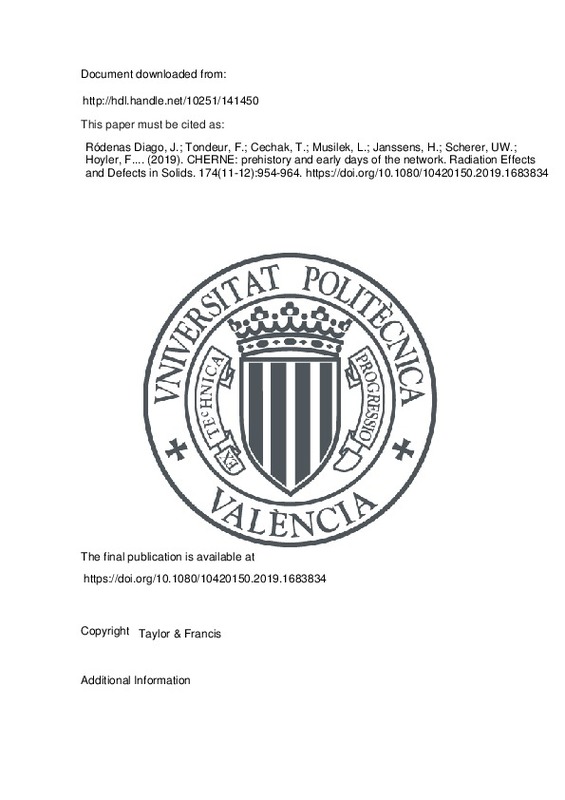JavaScript is disabled for your browser. Some features of this site may not work without it.
Buscar en RiuNet
Listar
Mi cuenta
Estadísticas
Ayuda RiuNet
Admin. UPV
CHERNE: prehistory and early days of the network
Mostrar el registro completo del ítem
Ródenas Diago, J.; Tondeur, F.; Cechak, T.; Musilek, L.; Janssens, H.; Scherer, UW.; Hoyler, F.... (2019). CHERNE: prehistory and early days of the network. Radiation Effects and Defects in Solids. 174(11-12):954-964. https://doi.org/10.1080/10420150.2019.1683834
Por favor, use este identificador para citar o enlazar este ítem: http://hdl.handle.net/10251/141450
Ficheros en el ítem
Metadatos del ítem
| Título: | CHERNE: prehistory and early days of the network | |
| Autor: | TONDEUR, FRANÇOIS Cechak, Tomas Musilek, Ladislav Janssens, Herwig Scherer, Ulrich W. Hoyler, Friedrich Mostacci, Domiziano | |
| Entidad UPV: |
|
|
| Fecha difusión: |
|
|
| Resumen: |
[EN] While the founding members of CHERNE gradually retire, the memory of the early steps of the network should not be lost. CHERNE (`Cooperation for Higher Education on Radiological and Nuclear Engineering¿) is the product ...[+]
|
|
| Palabras clave: |
|
|
| Derechos de uso: | Reserva de todos los derechos | |
| Fuente: |
|
|
| DOI: |
|
|
| Editorial: |
|
|
| Versión del editor: | https://doi.org/10.1080/10420150.2019.1683834 | |
| Tipo: |
|







![[Cerrado]](/themes/UPV/images/candado.png)


